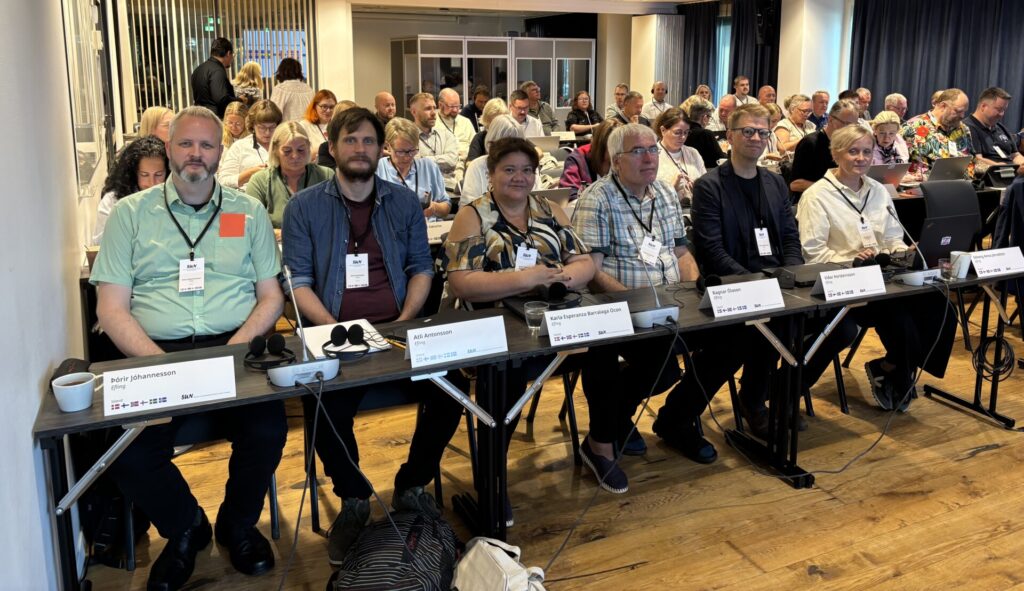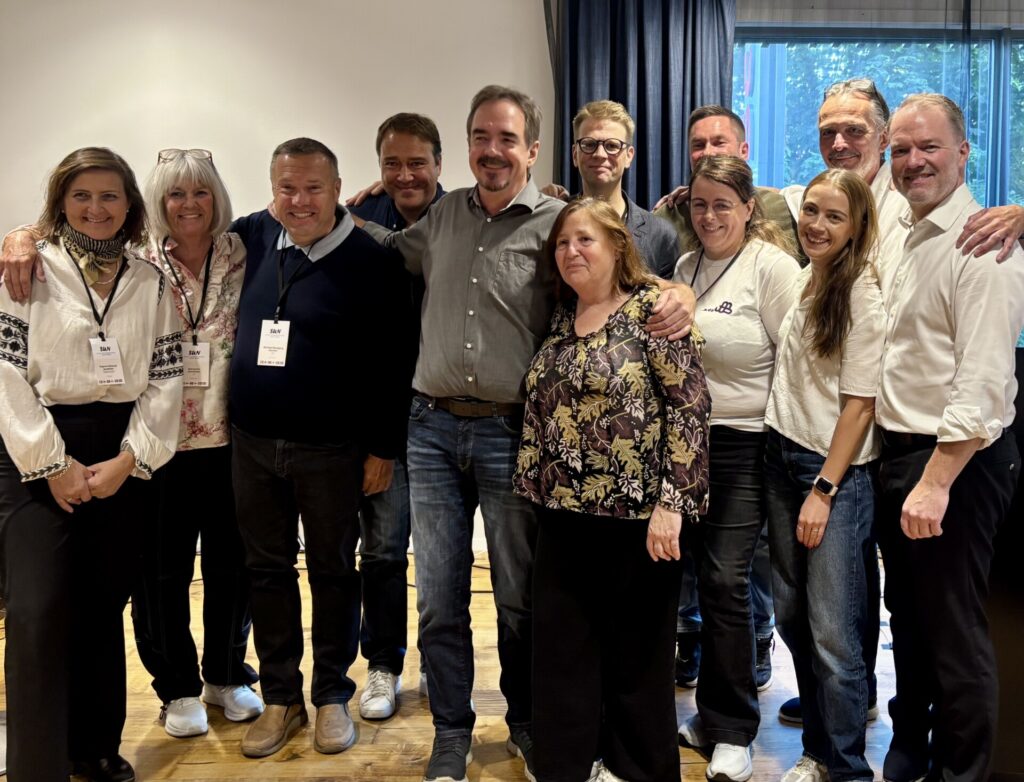
At the end of August, a group of board members and staff from Efling travelled to Stavanger, Norway, to attend the congress of the Nordic trade union federation SUN (Service- og tjänstebranschens Union i Norden). Efling’s representatives at the congress were chairperson Sólveig Anna Jónsdóttir, vice-chair Þórir Jóhannesson, and board member Karla Barralaga Ocon. They were accompanied by three staff members of the union, Ragnar Ólason, Viðar Þorsteinsson, and Atli Antonsson.
Many of the largest trade unions in the Nordic countries are members of SUN. The federation serves as a platform for consultation and information-sharing on issues concerning workers in security, cleaning, and property maintenance, as well as in smaller sectors. Efling joined SUN in 2024 and is a member of the federation’s cleaning and security divisions.
At SUN congresses, which are held every four years, a regular feature is that union representatives present reports on the political situation and developments in the labour market in Norway, Sweden, Denmark, Finland, the Faroe Islands, and Iceland. Reports are also given on the work of all occupational groups within the federation. This time, there were also special presentations and discussions on public procurement, the green transition, and the impact of artificial intelligence on working life.
In addition to the regular congress agenda, elections were held. Brede Edvardsen, chair of the Norwegian Workers’ Union, was elected president of SUN for the next four years, succeeding John Nielsen of the Serviceforbundet in Denmark, who had held the post since 2021. Chairs were also elected for all the federation’s occupational groups, which include security guards, cleaners, caretakers, and veterinary assistants.
The congress approved a work plan leading up to the next congress in 2029. During this period, several challenges facing the labour market will be given special attention. These include atypical employment forms such as freelancers and contractors at companies like Wolt, which operate under the so-called gig economy. The effects of the green transition on SUN members’ industries will also be examined, as well as how trade unions can influence public procurement and tenders, and how best to respond to disability and premature illness among members.
The Efling delegation unanimously agreed that the congress had been highly educational and that valuable connections were made with Nordic colleagues, which will benefit Efling’s work in the coming years.
This was the first SUN congress attended by Efling representatives, as the union became a full member of SUN last year. According to Sólveig Anna, Efling’s participation was of great importance. “It is very valuable for us to be able to compare our experiences with our Nordic colleagues, to receive advice and new ideas. At the same time, we shared our own knowledge. Cooperation like this, and other forms of international cooperation, are of vital importance in the struggle of working people, which is an international struggle.”
